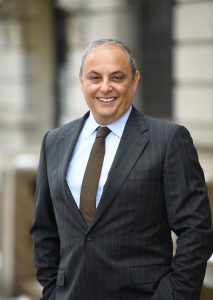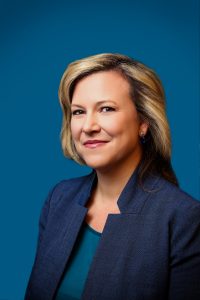Panel Discussion
Tunisia, Democracy, and the Legacy of the Arab Spring
Zoom Webinar
Thursday, September 30, 2021 | 12:00 PM – 1:00 PM EDT
Billed as the “success story” of the Arab Spring, Tunisia’s fragile democracy was rocked in late July when the President took several actions that some critics are terming an autocoup. With unemployment sharply higher since the Arab Spring, the government has not yet been able to quell the domestic economic discontent that launched the region-wide movement. With the country on the verge of dictatorship by some measures, how can the organizations and people that received the Nobel Peace Prize in 2015 for their political power-sharing efforts navigate this new terrain? And what does Tunisia’s youth, 30 percent of the population with unemployment rates of nearly 40 percent, make of their future? Join us on Thursday, September 30, 2021, at 12:00 PM ET for a discussion with Professor Safwan M. Masri, Executive Vice President for Global Centers and Global Development at Columbia University and Senior Research Scholar at Columbia’s School of International and Public Affairs; and Dr. Sarah Yerkes, Senior Fellow in Carnegie’s Middle East Program.
COULDN’T ATTEND OUR EVENT? Don’t worry. You can watch it below
SPEAKERS:
Professor Safwan M. Masri
 Professor Safwan M. Masri is Executive Vice President for Global Centers and Global Development at Columbia University and a Senior Research Scholar at Columbia’s School of International and Public Affairs (SIPA).
Professor Safwan M. Masri is Executive Vice President for Global Centers and Global Development at Columbia University and a Senior Research Scholar at Columbia’s School of International and Public Affairs (SIPA).
In his role as EVP, Masri directs a number of Columbia’s global initiatives and is responsible for the development of an expanding network of Global Centers, located in Amman, Beijing, Istanbul, Mumbai, Nairobi, Paris, Rio de Janeiro, Santiago, and Tunis. These centers work to advance Columbia’s global mission and extend the University’s reach to address the pressing demands of our global society.
Masri joined Columbia University in 1988 as a member of the faculty of the Columbia Graduate School of Business. He was appointed Vice Dean in 1993, a position he held for thirteen years. He previously taught engineering at Stanford University, and was a visiting professor at INSEAD (Institut Européen d’Administration des Affaires) in France.
A scholar of the contemporary Arab world, Masri’s work focuses on understanding postcolonial dynamics among religion, education, society, and politics. He is the author of Tunisia: An Arab Anomaly (Columbia University Press, 2017), which examines why Tunisia was the only country to emerge from the Arab Spring as a democracy. The book has received positive coverage in a number of media outlets, including the Financial Times, Le Monde, Foreign Policy, Foreign Affairs, and the Journal of Democracy. Masri is often quoted in the press and appears frequently on news programs. His writings on education and current affairs have been featured in the Financial Times, Huffington Post, The Hill, and Times Higher Education.
Masri is a lifetime member of the Council on Foreign Relations, an honorary fellow of the Foreign Policy Association and a member of the International Advisory Council of the World Congress for Middle Eastern Studies (WOCMES). He serves on the Board of Directors for AMIDEAST and on the Global Advisory Board for the Chazen Institute at Columbia Business School. Masri is also a trustee of International College in Beirut and the Welfare Association (Taawon) in Ramallah, and a director of Endeavor Jordan. He was founding chairman of King’s Academy and the Queen Rania Teacher Academy, and served as an advisor to Her Majesty Queen Rania Al Abdullah.
Masri earned his Bachelor of Science degree in industrial engineering from Purdue University in 1982; his Master of Science in industrial engineering, also from Purdue in 1984; and his Ph.D. in industrial engineering and engineering management from Stanford University in 1988. He was honored with the Singhvi Professor of the Year for Scholarship in the Classroom Award in 1990, the Robert W. Lear Service Award in 1998, and the Dean’s Award for Teaching Excellence in a Core Course in 2000. Masri has also been honored with the 2003 American Service Award from the American-Arab Anti-Discrimination Committee.
Dr. Sarah Yerkes
 Sarah Yerkes is a senior fellow in Carnegie’s Middle East Program, where her research focuses on Tunisia’s political, economic, and security developments as well as state-society relations in the Middle East and North Africa. She has been a visiting fellow at the Brookings Institution and a Council on Foreign Relations international affairs fellow and has taught in the Security Studies Program at Georgetown University and at the Elliott School of International Affairs at the George Washington University.
Sarah Yerkes is a senior fellow in Carnegie’s Middle East Program, where her research focuses on Tunisia’s political, economic, and security developments as well as state-society relations in the Middle East and North Africa. She has been a visiting fellow at the Brookings Institution and a Council on Foreign Relations international affairs fellow and has taught in the Security Studies Program at Georgetown University and at the Elliott School of International Affairs at the George Washington University.
Yerkes is a former member of the State Department’s policy planning staff, where she focused on North Africa. Previously, she was a foreign affairs officer in the State’s Department’s Office of Israel and Palestinian affairs. Yerkes also served as a geopolitical research analyst for the U.S. military’s Joint Staff Strategic Plans and Policy Directorate (J5) at the Pentagon, advising the Joint Staff leadership on foreign policy and national security issues.
We are trying our best to keep our community informed about foreign affairs, and we would appreciate if you can support us to keep this virtual briefing series going. No amount is too small.

